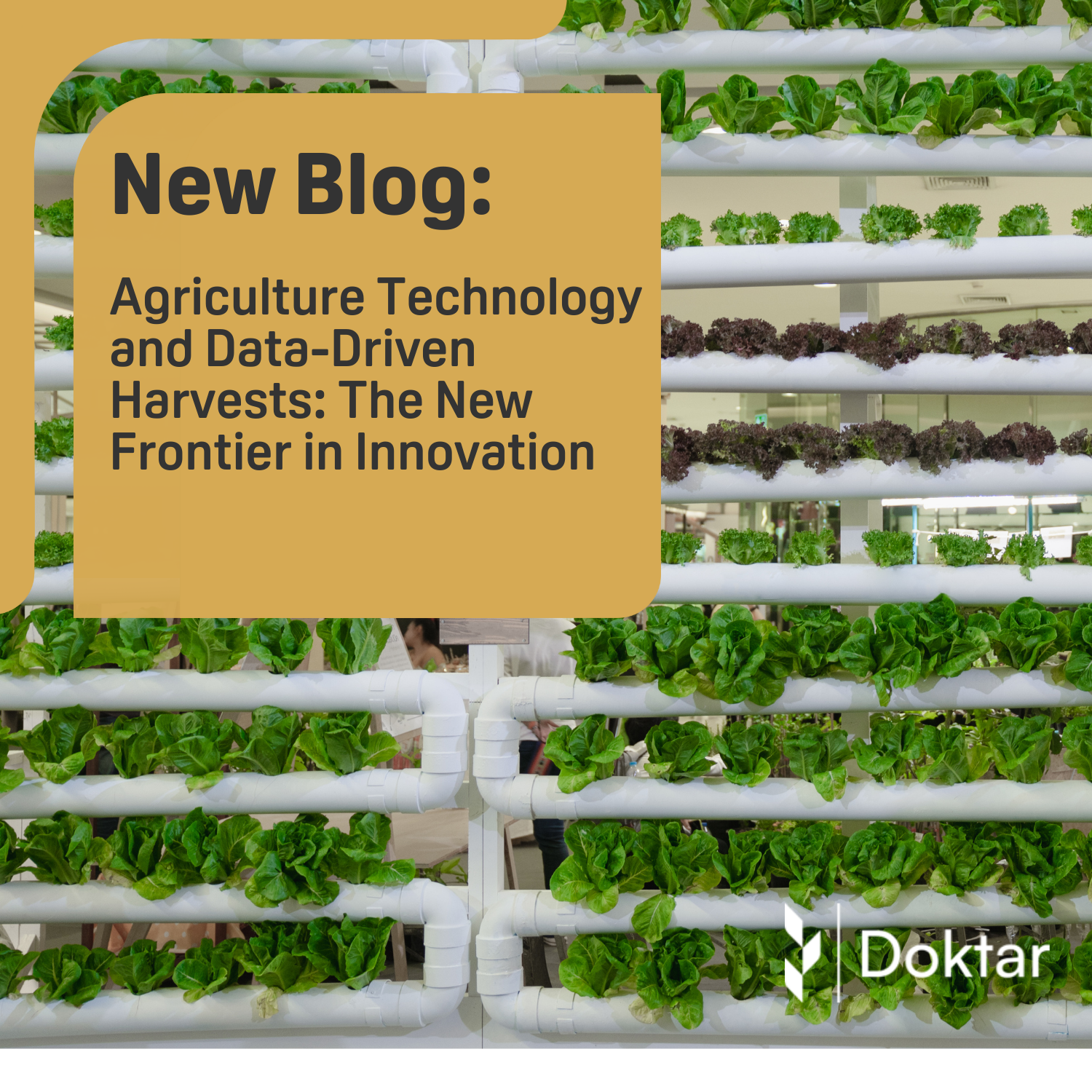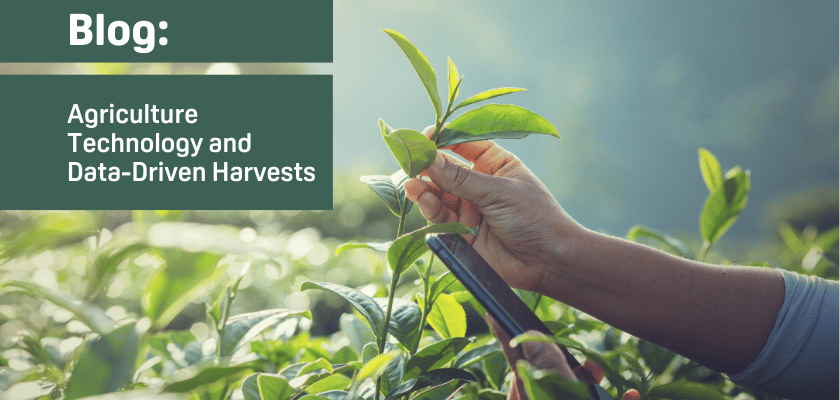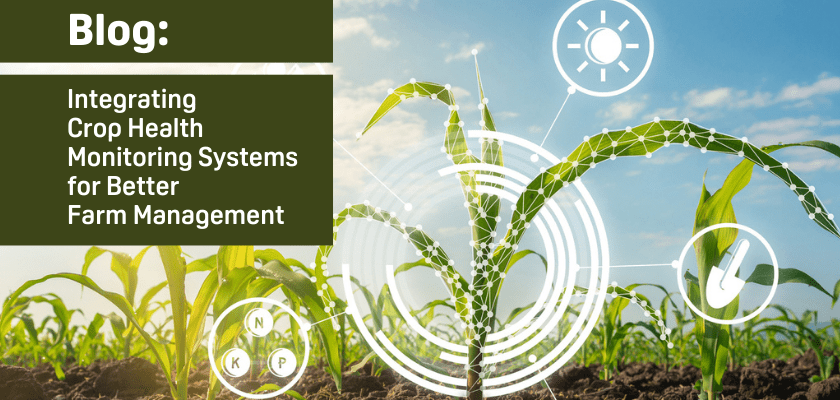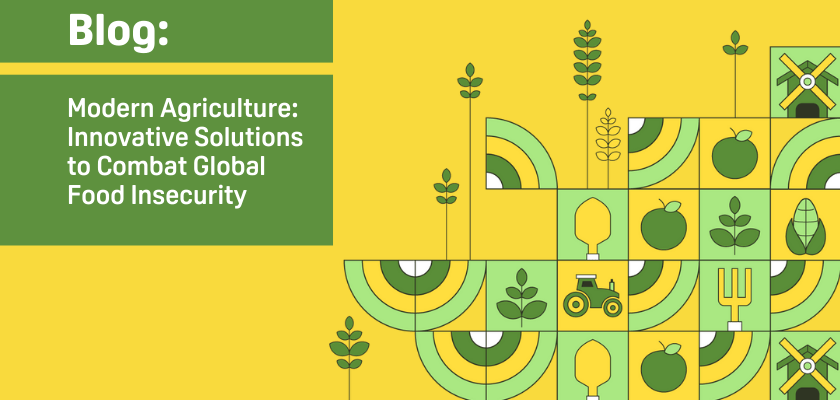

Agriculture Technology and Data-Driven Harvests: The New Frontier in Innovation
Agriculture technology, or agritech, is revolutionizing farming by integrating advanced tools like AI, drones, IoT, and precision agriculture. Companies like Doktar are leading this shift, enabling farmers to optimize operations, improve yields, and enhance sustainability. Through data-driven solutions, farmers can reduce resource use, boost productivity, and secure sustainable harvests.
Published on 21 October 2024
Agriculture, long essential to human survival, is now undergoing a profound technological transformation. With the rise of agriculture technology, farming is transitioning from traditional practices to data-driven approaches that promise more sustainable and productive harvests. In this blog post, we explore how technology in agriculture is transforming the field and how Doktar's innovative solutions are leading the charge.
What is Agriculture Technology?
Agriculture technology, often called "agritech," encompasses various tools and methods that enhance farming efficiency and productivity. It integrates advanced precision farming techniques, sustainable agriculture methods, and cutting-edge innovations like drones, IoT devices, and artificial intelligence (AI). By leveraging technology in agriculture, farmers can make more informed decisions, improve yields, and minimize resource use.
At the heart of this transformation is data-driven agriculture, where information from soil sensors, satellite imagery, and hyper-local weather forecasts is used to optimize farming operations. Doktar, a leader in agritech solutions, plays a vital role in this revolution. Its range of products, including Filiz, Orbit, and CropMap, is designed to help farmers make data-backed decisions.
The Newest Technologies in Farming
The new technology in agriculture is rapidly advancing. Some of the most notable innovations include:
- Drone Technology in Agriculture: Drones with sensors can monitor crop health, identify problematic areas, and even deliver exact inputs like fertilizers or pesticides.
- IoT Sensors: Devices like Doktar's Filiz Agricultural Sensor Station track soil humidity, temperature, and other environmental factors. These sensors provide real-time data, allowing farmers to optimize irrigation and spraying schedules.
- Satellite Monitoring: Tools like Orbit—Doktar's field scouting app—use satellite images to monitor crops remotely, providing insights into yield potential, plant health, and the best times for harvesting.
Smart Agriculture Technology: A Game Changer
Smart agriculture technology integrates advanced tools like AI, machine learning, and remote sensing into farming practices. This approach is vital to sustainable agriculture, where resources are used more efficiently and environmental impact is minimized.
For example, Doktar's CropMap service uses remote sensing and AI to detect field boundaries, monitor crop types, and predict harvest outcomes with up to 98% accuracy. With over a decade of experience and over 100,000 ground-truth samples collected annually, Doktar ensures its precision agriculture tools are reliable and effective.
How Technology is Driving Sustainable Agriculture
One of the most significant benefits of modern agriculture technology is its contribution to sustainable agriculture. By using advanced tools, farmers can reduce the overuse of water, fertilizers, and pesticides—critical factors in maintaining soil health and ensuring long-term productivity.
Doktar's services are designed with sustainable agriculture in mind. For instance, integrated with the Orbit platform, its Variable Rate Application (VRA) tool helps farmers apply the right amount of inputs (like fertilizers or water) to specific field zones, reducing waste and increasing efficiency. The practice of applying precise inputs aligns with the goals of regenerative agriculture, which focuses on improving soil health and restoring ecosystems.
The Impact of Precision Agriculture on Harvests
Precision agriculture—using detailed data to make farming decisions—has become the cornerstone of agricultural technology. It allows farmers to manage fields at a micro-level, improving yields and profitability.
With Doktar's precision farming tools, such as Filiz and Orbit, farmers can track real-time conditions in their fields. The ability to access real-time data allows them to respond quickly to changes, such as weather shifts or pest outbreaks, reducing the risk of crop loss. PestTrap, another innovative product by Doktar, uses AI to detect and monitor pest populations, enabling timely interventions and minimizing damage.
How Has Technology Changed Agriculture?
The use of technology in agriculture has fundamentally altered how food is produced. Today, farmers no longer rely on guesswork; they have access to precise, real-time data that empowers them to make informed decisions and puts them in control of their operations.
Doktar's integrated solutions, including the AI models in PestTrap and Orbit, demonstrate how new agriculture technology makes farming more efficient. These tools offer early warnings, risk assessments, and recommendations that help farmers optimize their operations and reduce input costs. Whether monitoring pest populations, predicting disease risks, or comparing field yields, Doktar's technologies empower farmers to achieve better outcomes with fewer resources.
What is the Future of Agriculture and Technology?
The future of agriculture and technology holds immense potential. Further enhancing the ability to collect, analyze, and act on data, advanced agriculture technology like AI-powered models, IoT integration, and machine learning algorithms will continue to play a central role in transforming farming practices globally, offering a promising future.
Doktar is committed to this future. With services like CropMap, which provides tailored agricultural insights, and Filiz, which monitors environmental conditions in real-time, Doktar ensures that farmers can stay ahead of challenges and seize growth opportunities. By embracing sustainable agriculture technology, farmers can produce more while conserving resources and protecting the environment.
Conclusion
The convergence of agriculture technology and data-driven solutions represents the next frontier of innovation in farming. With companies like Doktar leading the way, farmers can leverage these advancements to improve productivity, reduce environmental impact, and secure a more sustainable future for agriculture.
Whether through precision agriculture, sustainable agriculture, or cutting-edge smart agriculture technology, the future of farming is bright, and data is at the heart of this transformation. Technology's positive impact on this future should inspire and motivate us all.

Agriculture Technology and Data-Driven Harvests
The convergence of agriculture technology and data-driven solutions represents the next frontier of innovation in farming. With companies like Doktar leading the way, farmers can leverage these advancements to improve productivity, reduce environmental impact, and secure a more sustainable future for agriculture. Whether through precision agriculture, sustainable agriculture, or cutting-edge smart agriculture technology, the future of farming is bright, and data is at the heart of this transformation. Technology's positive impact on this future should inspire and motivate us all.

Integrating Crop Health Monitoring Systems for Better Farm Management
Crop health monitoring systems revolutionize modern agriculture by enabling real-time insights into plant health, reducing losses, and promoting sustainability. Tools like Doktar’s CropMap and Orbit integrate advanced technologies, empowering farmers with data-driven decisions. By enhancing efficiency and sustainability, these systems are essential for future-proofing agricultural operations.

Modern Agriculture: Innovative Solutions to Combat Global Food Insecurity
Modern agriculture combats global food insecurity with precision agriculture, sustainable practices, and biotechnology. Tools like IoT, automation, and crop innovations optimize resource use, enhance resilience, and ensure stable food supplies. By integrating smart technologies, agribusinesses address challenges like climate change and resource scarcity, paving the way for a sustainable food future.
